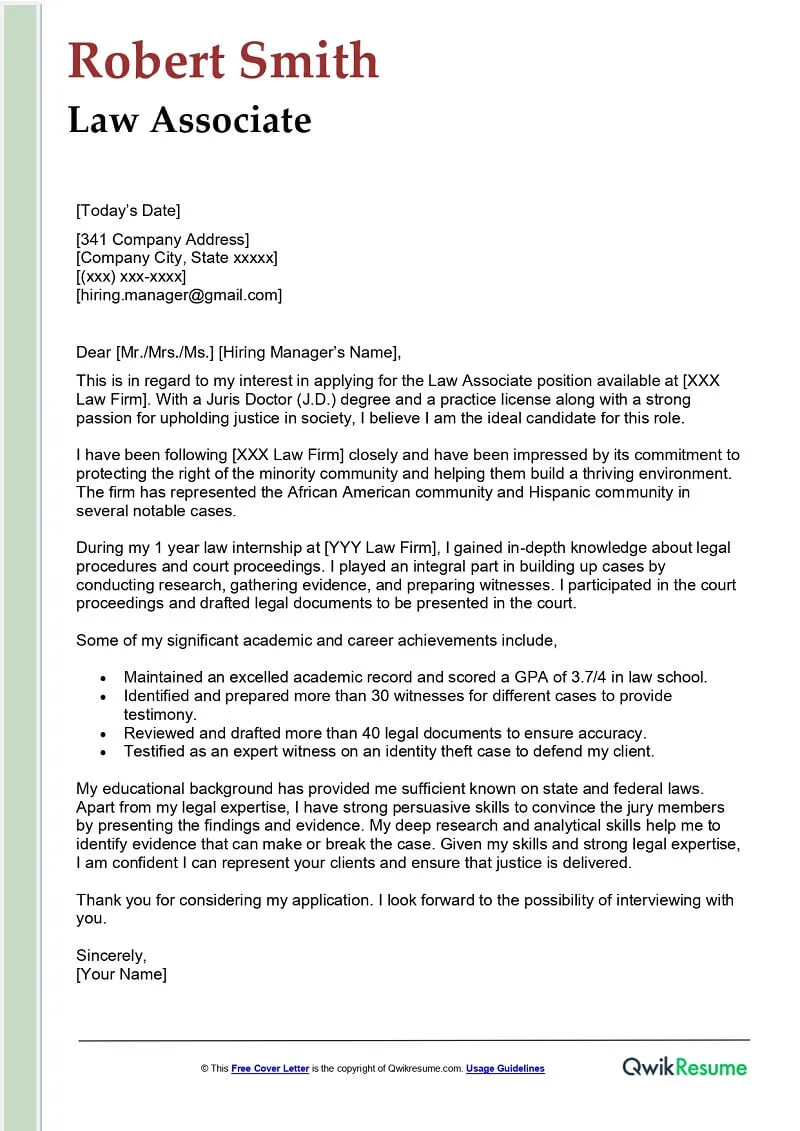Crafting a Winning Cover Letter
The cover letter is your first impression on a potential employer and a crucial element in securing a law school internship. It’s a formal document that introduces you, highlights your qualifications, and expresses your interest in the specific opportunity. A well-crafted cover letter can significantly increase your chances of getting an interview. It goes beyond the resume, allowing you to showcase your personality, writing skills, and passion for the legal field. Remember, this isn’t just about listing your accomplishments; it’s about telling a compelling story that convinces the reader you’re the ideal candidate.
Understanding the Purpose of a Cover Letter
The primary purpose of a cover letter for a law school internship is to persuade the hiring manager to read your resume and invite you for an interview. It acts as a bridge, connecting your skills and experiences with the specific requirements and expectations of the internship. It’s your chance to demonstrate your understanding of the role, the law firm, or organization, and why you’re a perfect fit. Your goal is to make a memorable and positive impression, highlighting your motivation, your relevant skills, and your understanding of the legal field. The cover letter also allows you to elaborate on experiences and skills that may not be fully detailed on your resume.
Highlighting Your Qualifications
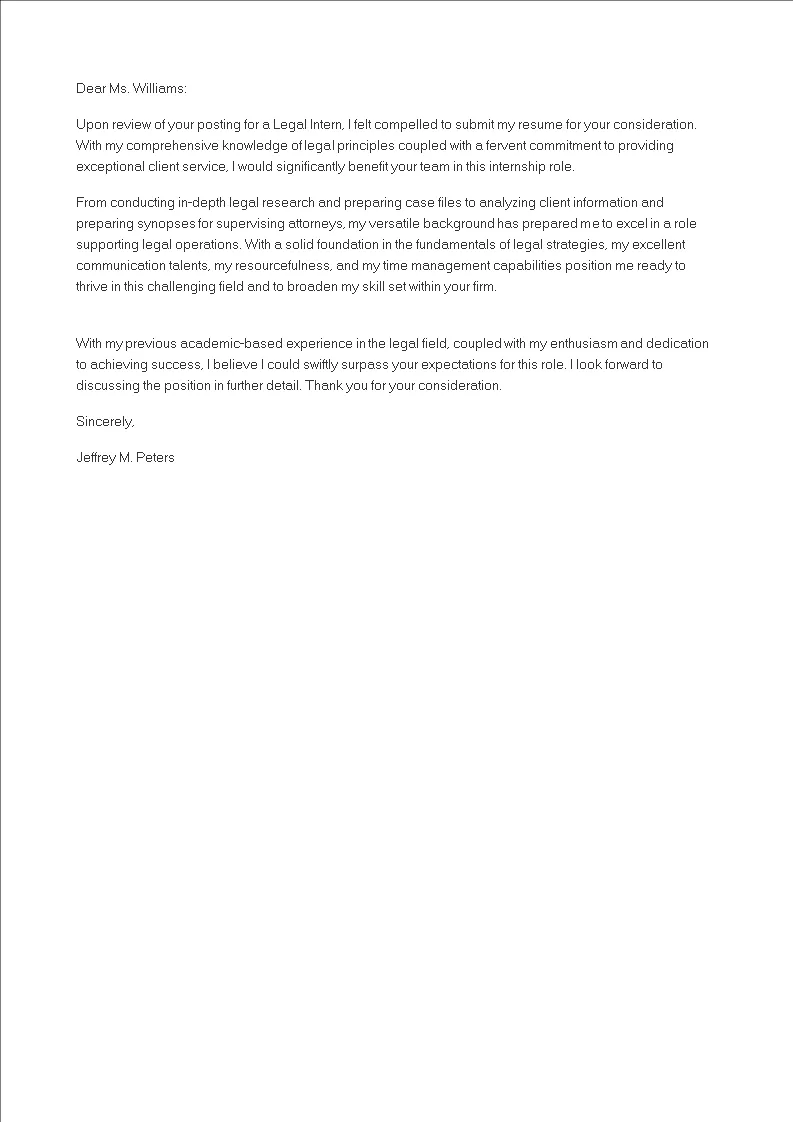
Your cover letter is the ideal space to emphasize your qualifications, making them relevant to the internship. Carefully review the internship description, and identify the key skills and experiences the employer seeks. Then, provide specific examples from your academic, professional, or extracurricular experiences that demonstrate you possess those qualities. This could include your academic achievements, such as your GPA or relevant coursework. Consider highlighting your participation in moot court, law review, or other law-related activities that show your practical application of legal concepts and strong analytical capabilities. Make certain to connect these qualifications directly to the internship requirements.
Showcasing Relevant Skills
In addition to your qualifications, a standout cover letter showcases relevant skills. These skills often include strong research, writing, critical thinking, and communication abilities. Highlight your proficiency in these areas by providing concrete examples. Describe a research project where you effectively analyzed complex legal issues, or a writing assignment where you crafted a persuasive legal argument. Detail instances where you effectively communicated with clients or colleagues. Show the ability to work in a team, manage your time effectively, and adapt to new environments. Tailor your skills section to align with the specific needs and responsibilities outlined in the internship posting; this personalization is crucial.
Researching the Law Firm or Organization
Before writing your cover letter, conduct thorough research on the law firm or organization. Explore their website, read about their practice areas, and understand their mission and values. Knowing their specific focus will enable you to tailor your letter and demonstrate your genuine interest. Identify any recent cases, publications, or community involvement. If possible, research the hiring manager or the attorney you would be working with. This research will allow you to address your letter to the correct person and to reference specific aspects of the firm that resonate with you. This level of preparation shows initiative and a commitment to the opportunity. This preparation will help you stand out from other applicants.
Tailoring Your Letter to the Specific Internship
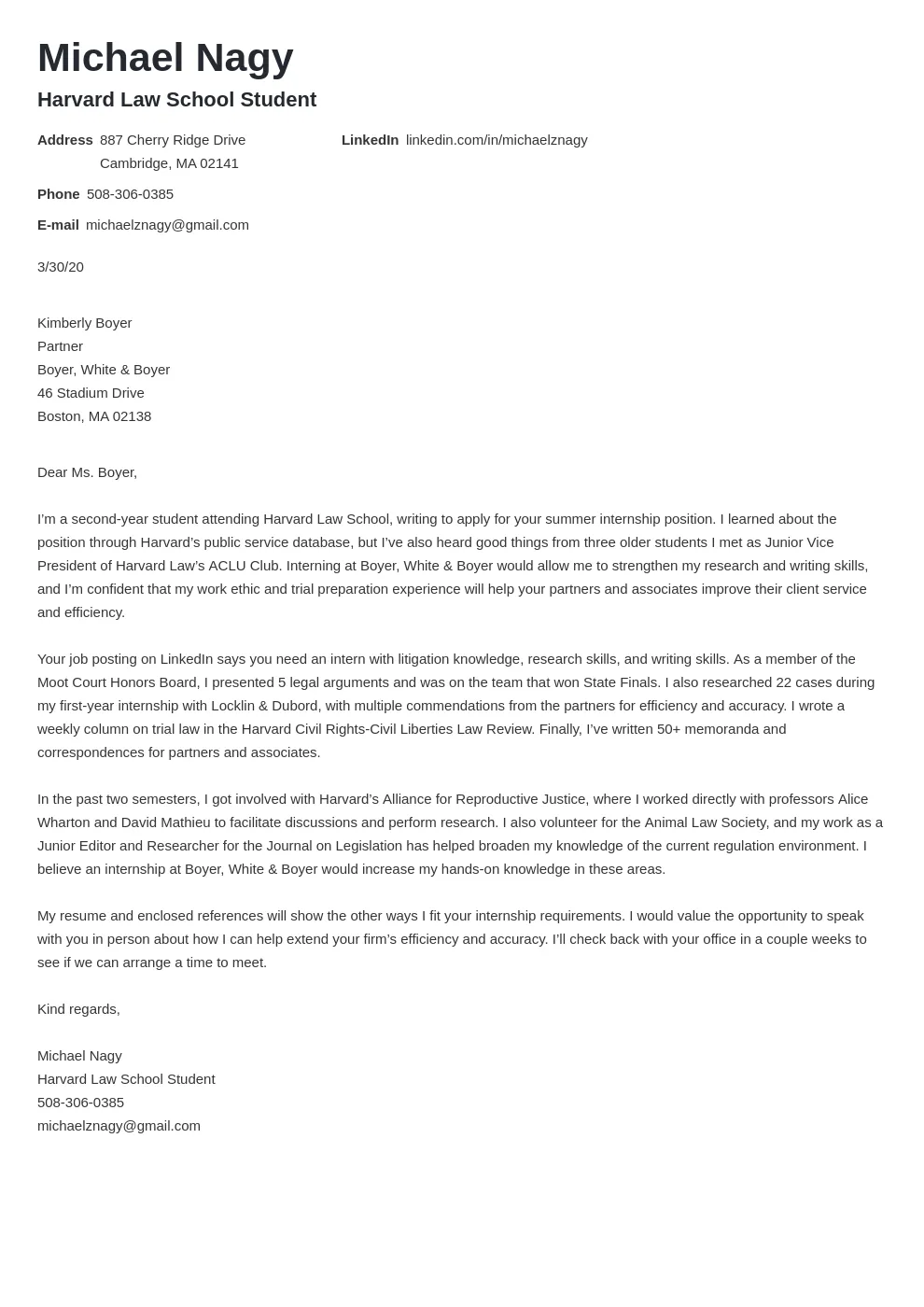
Generic cover letters are easily spotted and often discarded. Your cover letter needs to be meticulously tailored to the specific internship. Begin by carefully reading the internship description and identifying the key requirements, responsibilities, and desired qualifications. Then, use the cover letter to explicitly connect your skills, experiences, and career goals to these aspects of the internship. Show the employer how your background aligns with the organization’s needs. Refer to the specific practice areas, cases, or projects that interest you. If possible, mention how the internship aligns with your long-term career objectives. Personalization is critical to demonstrate your genuine enthusiasm and understanding of the opportunity.
Structuring Your Cover Letter for Impact
A well-structured cover letter is easier to read and more persuasive. Begin with a clear and concise opening paragraph. State the specific internship you’re applying for and how you learned about the opportunity. The body of your letter should highlight your relevant qualifications and skills, providing specific examples to support your claims. Use separate paragraphs to discuss your academic achievements, relevant experiences, and any special skills you possess. Conclude with a strong closing paragraph that reiterates your interest, summarizes your key strengths, and states your availability for an interview. Use clear headings to help the reader navigate through your letter and make it easier to find key information quickly. Make sure your letter follows the standard business letter format.
Formatting Your Cover Letter for Professionalism
The formatting of your cover letter can significantly impact its professional appearance. Use a standard font such as Times New Roman, Arial, or Calibri, in a 10-12 point size. Maintain consistent margins (typically one inch on all sides). Use single spacing within paragraphs and double spacing between paragraphs. Address your letter to the hiring manager or the specific contact person whenever possible. Include your contact information, including your name, address, phone number, and email address, at the top of the letter. Ensure your letter is free of grammatical errors, typos, and formatting inconsistencies. The goal is to present a polished and professional document. This attention to detail shows respect for the reader and demonstrates your commitment to professionalism.
Writing a Compelling Opening Paragraph
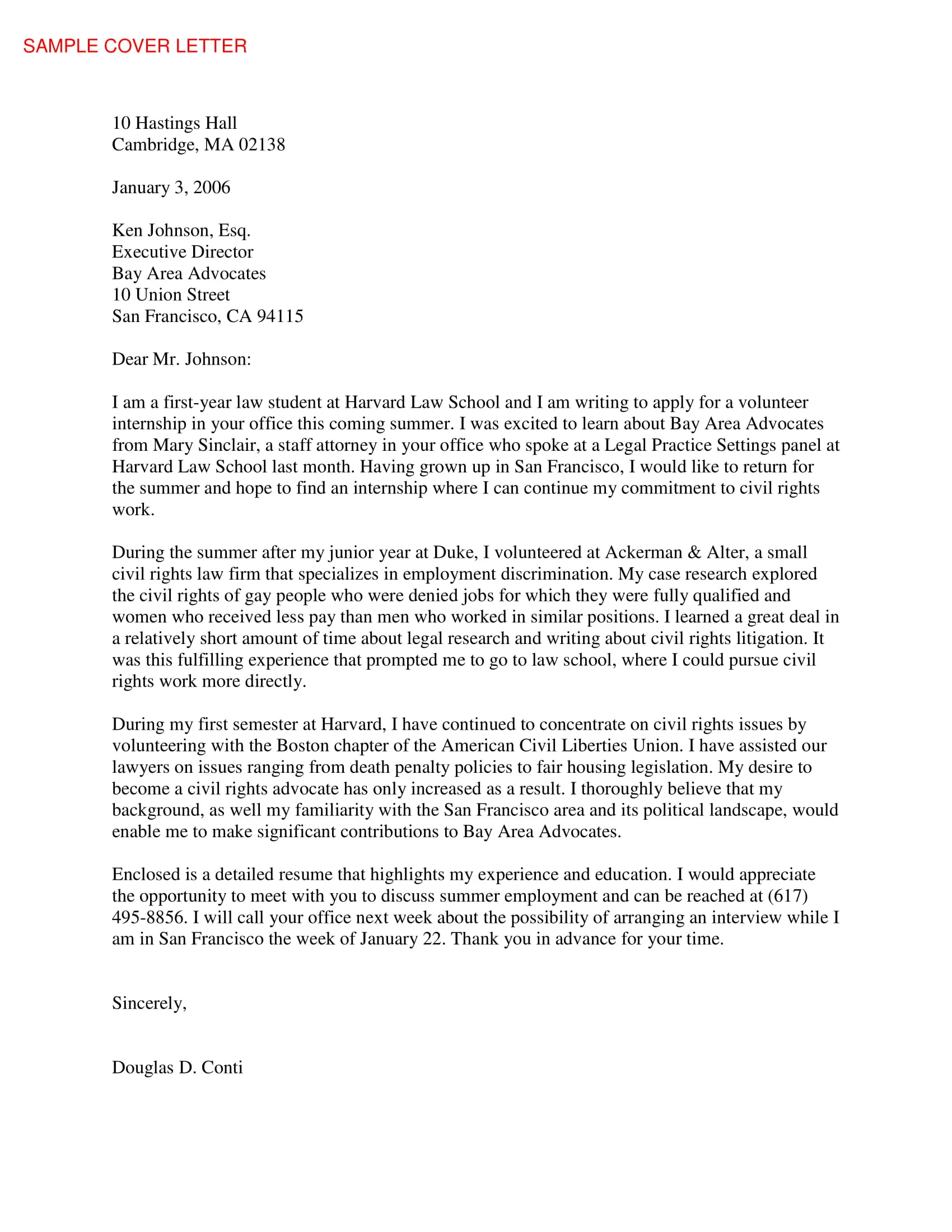
The opening paragraph is your first and often only chance to grab the reader’s attention. It should be concise, compelling, and make a strong first impression. Start by stating the specific internship you are applying for and where you found the opportunity. Briefly mention your enthusiasm for the role and the organization. You can also include a brief statement about what makes you a strong candidate, or what you are hoping to gain from the internship. Tailor your opening to the specific role and organization to demonstrate your interest. Avoid generic openings; instead, personalize your introduction to show your genuine interest and enthusiasm.
Stating Your Purpose and Enthusiasm
In the opening paragraph, clearly state your purpose for writing the cover letter. This means specifying the internship you are applying for. Immediately express your enthusiasm for the opportunity and the organization. Briefly explain what interests you about the role and how it aligns with your career goals. Showing genuine enthusiasm can set you apart from other candidates. This initial expression of interest sets the tone for the rest of your letter. It shows the reader that you are genuinely motivated to learn and contribute. Demonstrating enthusiasm from the outset increases the chances of the hiring manager continuing to read your letter.
Developing the Body Paragraphs
The body paragraphs of your cover letter are where you provide the details that will persuade the reader to offer you an interview. Each body paragraph should focus on a key qualification or skill. Use the STAR method (Situation, Task, Action, Result) to provide concrete examples. First, describe the situation you were in. Then, outline the task you needed to accomplish. Explain the specific actions you took. Finally, detail the positive results that you achieved. Provide evidence of your abilities. Quantify your achievements whenever possible, using numbers or percentages to demonstrate the impact of your work. Keep each paragraph concise and relevant to the specific internship requirements.
Providing Specific Examples and Achievements
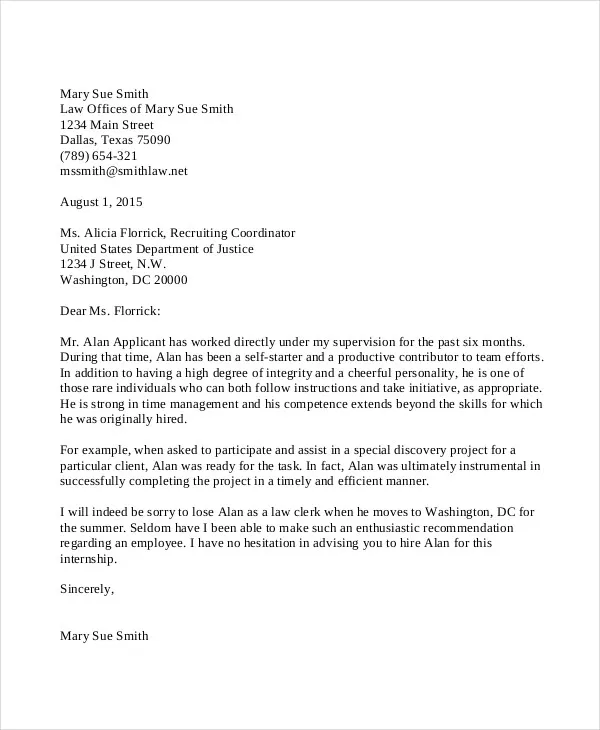
One of the most effective ways to demonstrate your qualifications is by providing specific examples and achievements. Instead of simply stating that you have strong research skills, provide an example of a research project you completed, including the topic, the challenges you faced, and the positive results you achieved. If you participated in a moot court competition, mention your role, any awards or recognition you received, and what you learned from the experience. These detailed examples bring your skills to life and provide concrete evidence of your capabilities. Quantify your achievements whenever possible. This evidence helps create a compelling narrative that highlights your strengths. Remember, your goal is to show, not just tell.
Quantifying Your Accomplishments
Whenever possible, quantify your accomplishments to make a stronger impact. Instead of saying you improved efficiency, state by what percentage. If you helped increase a company’s social media presence, specify the number of new followers or the increase in engagement. When you mention an accomplishment, include the specific figures, data, or results. If you earned a high grade in a relevant course, state your GPA. Quantifying your achievements gives the reader a clear and measurable understanding of your abilities. Quantitative information is far more persuasive than qualitative statements alone. It allows the hiring manager to understand the concrete impact of your contributions. This also allows you to stand out.
Demonstrating Your Knowledge of Law
A cover letter for a law school internship offers an opportunity to demonstrate your knowledge of the law. Highlight any specific legal knowledge. Mention any relevant coursework, such as constitutional law or criminal procedure. If you have a strong understanding of specific legal concepts, reference them appropriately within the context of your experiences. Consider discussing any legal research projects you’ve undertaken, the legal theories you’ve explored, or any legal cases you’ve analyzed. Show your genuine interest and knowledge of the law in a clear, concise, and relevant manner. It is important to prove you have a baseline comprehension of legal theory and principles. This is crucial for demonstrating your readiness for a law school internship.
Writing a Strong Closing Paragraph
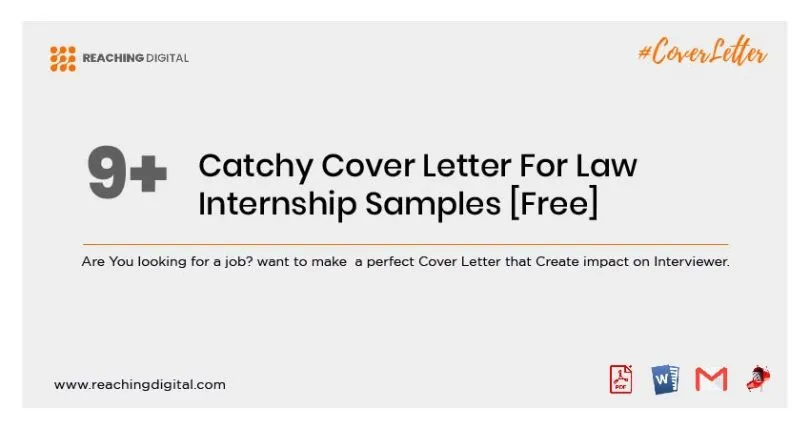
The closing paragraph is your final opportunity to make a positive impression. It should reiterate your interest in the internship and summarize your key qualifications. Express your enthusiasm for the opportunity. Reiterate your interest in the role. Summarize your key strengths and how they align with the internship requirements. Thank the reader for their time and consideration. State your availability for an interview. End with a professional closing, such as “Sincerely” or “Respectfully,” followed by your name. A strong closing paragraph reinforces your message and leaves the reader with a positive final impression. It also provides a clear call to action by stating your availability for an interview.
Reiterating Your Interest and Availability
In your closing paragraph, it is essential to reiterate your interest in the internship. Express your excitement for the opportunity and why you believe you are a good fit. Also, clearly state your availability for an interview. Make it easy for the hiring manager to take the next step by specifying the best way to contact you. Providing your phone number and email address can facilitate communication. Showing your willingness to engage further demonstrates your professionalism and commitment to the opportunity. Making this process easy for the hiring manager increases your chances of being considered for an interview.
Proofreading and Editing Your Cover Letter
Proofreading and editing your cover letter is a critical step in ensuring its professionalism. Carefully review your letter for any grammatical errors, typos, and formatting inconsistencies. Read your letter aloud to catch any awkward phrasing or sentences. Consider having someone else review your letter; a fresh pair of eyes can often spot errors you might miss. Check the spelling of the hiring manager’s name and the organization’s name to prevent making a negative first impression. Thorough proofreading ensures that your cover letter is polished and professional. This final step ensures your letter is error-free and presents you in the best possible light. A well-edited letter demonstrates your attention to detail.
Ensuring Accuracy and Clarity
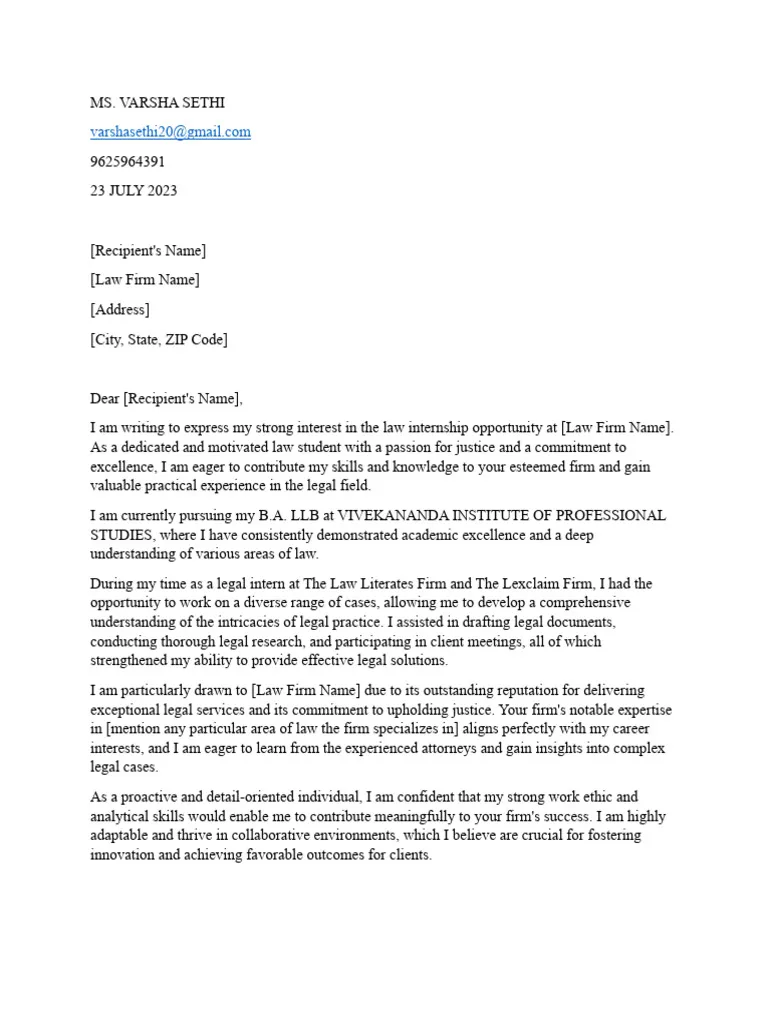
Beyond grammar and spelling, make sure that your cover letter is clear, concise, and accurate. Ensure the information presented is factual and easy to understand. Avoid using overly complex language or jargon that might confuse the reader. The goal is to communicate your message effectively. Make sure the content of your cover letter aligns with your resume and that the information you provide is consistent across both documents. Ensure that the contact information is correct and that the firm or organization’s name is spelled correctly. Precision and clarity demonstrate your attention to detail, making the hiring manager view you as a trustworthy applicant.
Seeking Feedback from Others
One of the best ways to improve your cover letter is by seeking feedback from others. Ask professors, career advisors, or experienced attorneys to review your letter and provide constructive criticism. Ask for help identifying areas for improvement and the overall effectiveness of your message. Before submitting your letter, get feedback from multiple sources to gain a variety of perspectives. Consider asking friends or family to read your letter, ensuring it is understandable to anyone. Use the feedback you receive to make revisions and refine your cover letter. This collaborative approach increases your chances of creating a standout document that helps you get the law school internship you want.
